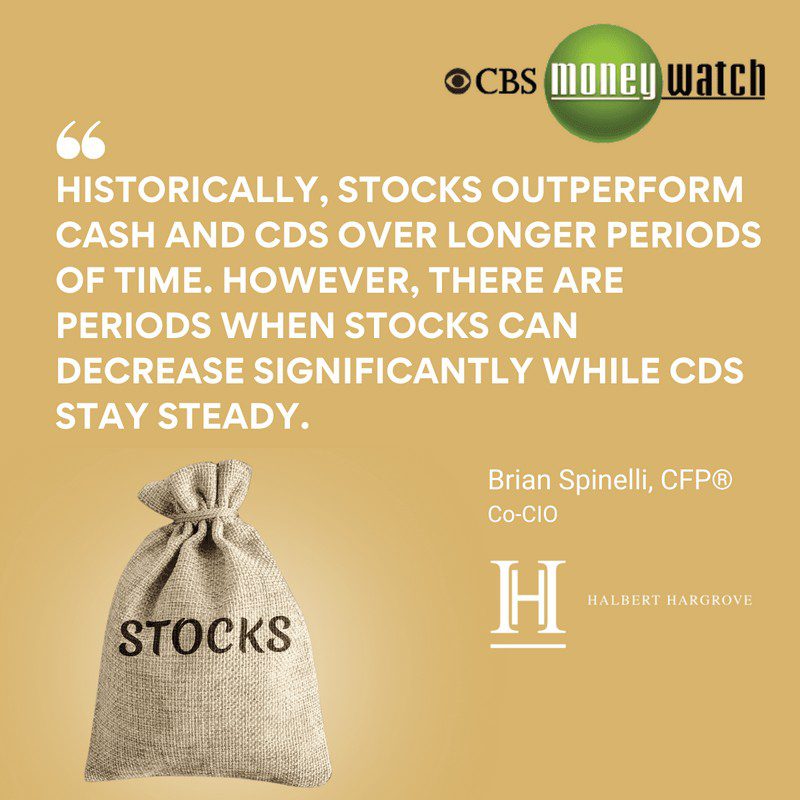By Joshua Rodriguez, CBS News featuring Brian Spinelli, CFP®, AIF®, Co-Chief Investment Officer
As you build your emergency fund, you may want to focus on generating a meaningful return while you store your money in a safe, highly liquid environment — like a high-yield savings account. But your savings goals shouldn’t stop when you have a flush emergency fund. Instead, it makes sense to save money in different ways.
And, once your high-yield savings account has enough money to cover your expenses for three to six months, it can also make sense to branch into other investment opportunities as well. Considering that you have numerous choices, though, you may wonder whether it’s better to invest in stocks or focus on safer vehicles like certificates of deposit (CDs). Well, chances are that both of these options have a place in your portfolio.
Is it better to invest in stocks or a CD?
“The first thing to consider is the investor’s timeline and risk tolerance,” says Brian Spinelli, AIF, co-chief investment officer at Halbert Hargrove.
“When do they need the funds, and what is their ability to stick with price volatility?”
“Historically, stocks outperform cash and CDs over longer periods of time. However, there are periods when stocks can decrease significantly while CDs stay steady,” Spinelli says.
So, when is it best to invest in one over the other?
When it’s better to invest in a CD
“If an investor will need that money in the short term, they may not have the time to ride out a stock market pullback,” says Spinelli.
According to Hartford Funds, bear markets happen about every 3.5 years on average and last for more than nine months. If you’re saving for a near-term goal and get caught in one of these bear markets with a stock portfolio, you may be forced to accept losses.
So, in these cases, CDs may be the better option.
The fact that bear markets happen regularly also makes the stock market relatively risky. That means if you are a risk-averse investor, you may be better served with a higher allocation of your excess funds in CDs than in stocks.


